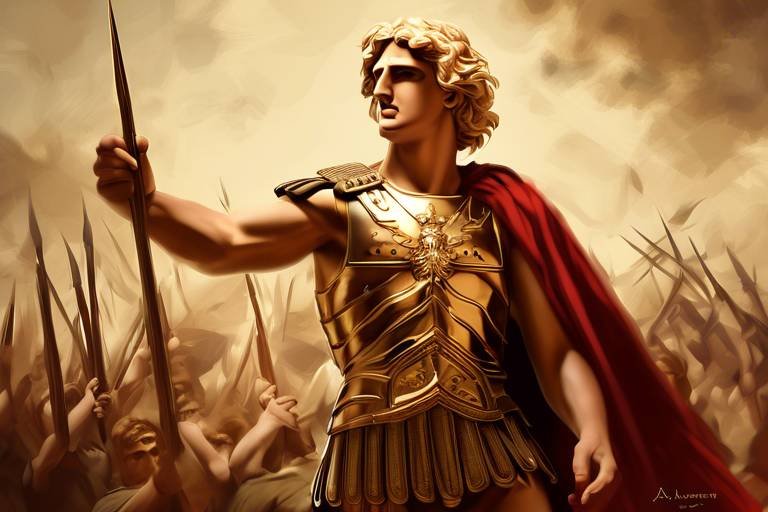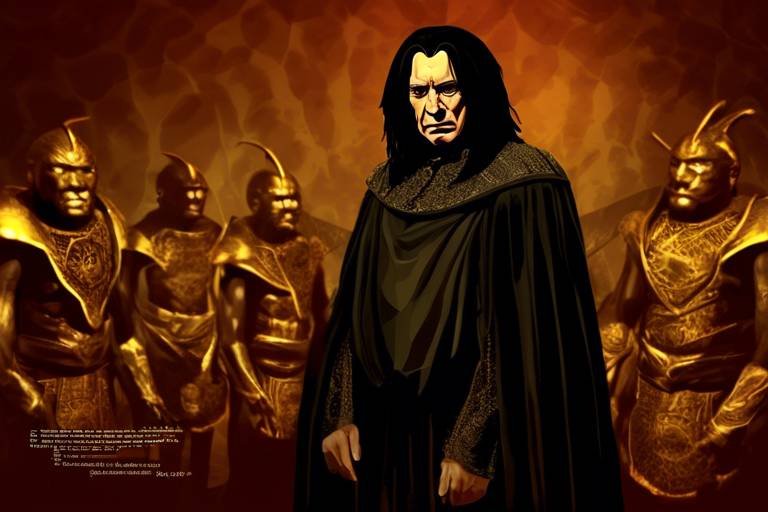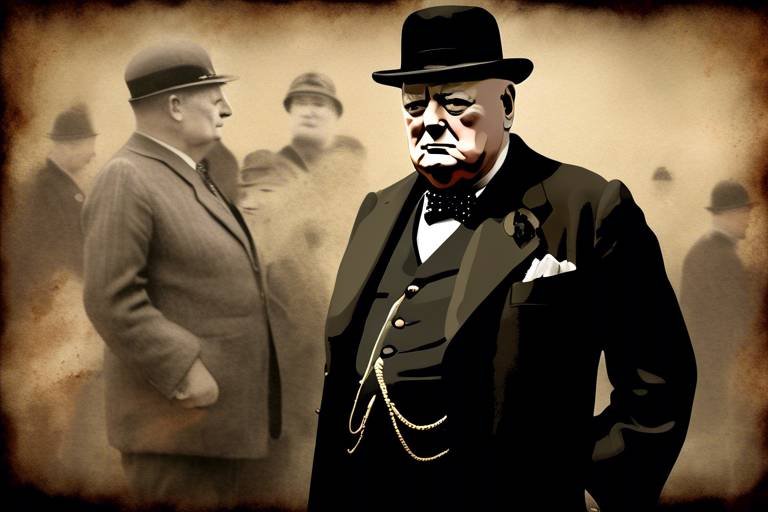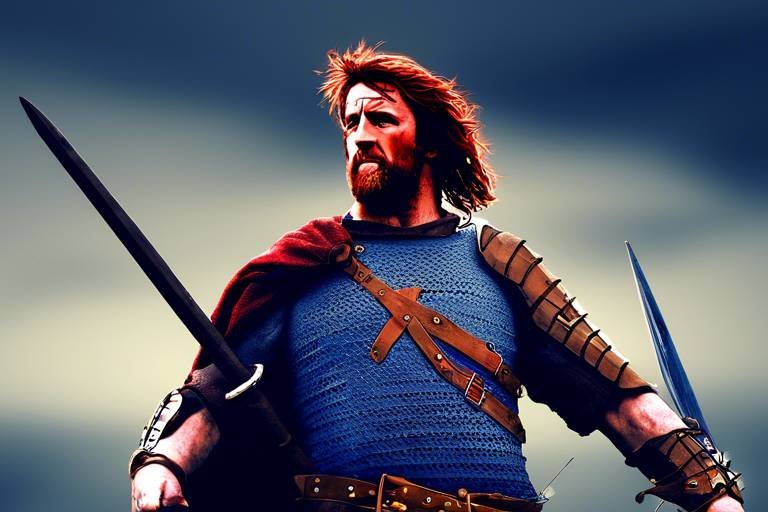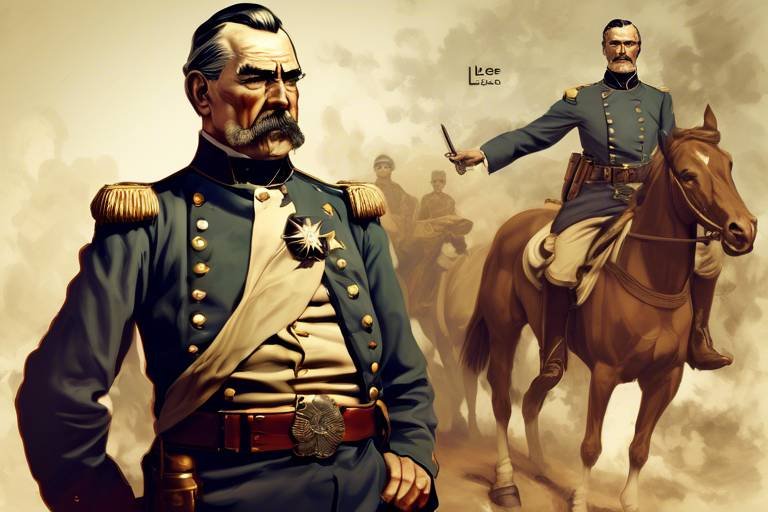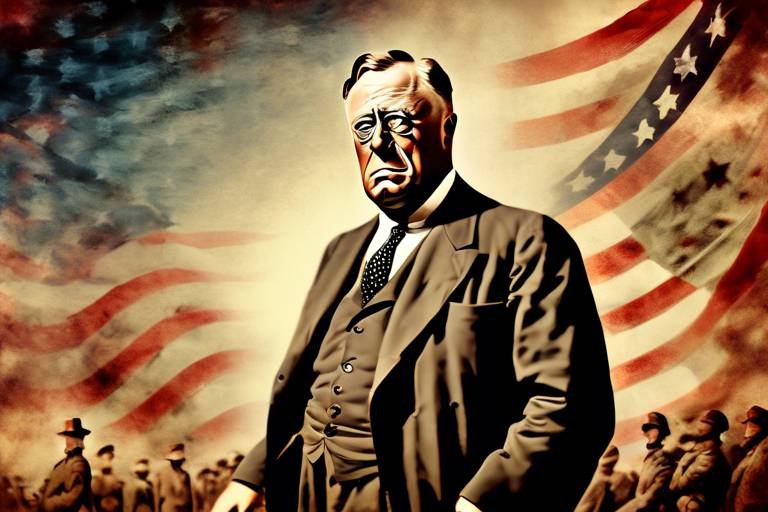Alexander the Great: The Legacy of a Military Genius
Alexander the Great, known for his unparalleled military genius, left a legacy that continues to captivate the world centuries after his death. His conquests reshaped the map of the ancient world, stretching from the Mediterranean to the borders of India. Alexander's remarkable achievements on the battlefield and his strategic vision have inspired generations of military leaders and scholars alike.
From a young age, Alexander showed a keen interest in warfare and leadership, traits that were further honed under the guidance of the renowned philosopher Aristotle. His father, King Philip II of Macedon, played a crucial role in shaping Alexander's ambitions, instilling in him a deep sense of duty and a thirst for conquest.
Embarking on his campaigns of conquest, Alexander demonstrated unparalleled military prowess, leading his army to victory in numerous battles against formidable foes. The battles of Granicus, Issus, and Gaugamela stand as testaments to his tactical brilliance and unwavering determination.
Alexander's legacy extends far beyond the battlefield, influencing art, literature, and philosophy for centuries to come. His patronage of the arts and promotion of cultural exchange helped to spread Hellenistic culture throughout his vast empire, leaving a lasting impact on the regions he conquered.
Despite his untimely death at the age of 32, Alexander's empire endured, albeit fragmented, as his generals vied for control in the power vacuum left by his passing. The legacy of his conquests, administrative reforms, and military strategies continued to shape the course of history long after his reign.
Historical accounts of Alexander's life have sparked debates and controversies, with differing perspectives on his character, achievements, and the nature of his empire. The enduring fascination with Alexander the Great lies in his complex persona, his unparalleled military achievements, and the lasting impact of his legacy on the world.
As we delve into the life and legacy of Alexander the Great, we uncover a tapestry of conquests, cultural exchanges, and enduring influence that cement his status as one of history's greatest military leaders. His legacy as a military genius continues to inspire awe and admiration, a testament to the enduring power of his remarkable achievements.

Early Life and Education
From a young age, Alexander the Great was immersed in a world of politics, warfare, and intellectual pursuits. Born in 356 BC in Pella, the ancient capital of Macedon, he was the son of King Philip II and Queen Olympias. His education was entrusted to the renowned philosopher Aristotle, who instilled in him a love for learning, philosophy, and literature.
Under Aristotle's guidance, Alexander studied a wide range of subjects, including philosophy, medicine, and natural sciences. This early exposure to diverse fields of knowledge would later shape his leadership style and strategic thinking on the battlefield. King Philip II, a seasoned military commander himself, also played a crucial role in Alexander's upbringing, imparting valuable lessons on warfare, tactics, and statecraft.
As a young prince, Alexander accompanied his father on military campaigns, witnessing firsthand the art of war and the complexities of leadership. These experiences fueled his ambition to conquer new lands and expand the boundaries of his empire. By the time he ascended to the throne at the age of 20, Alexander was already well-versed in the art of war and governance, poised to fulfill his destiny as a legendary conqueror.

Conquests and Expansion
During his remarkable military campaigns, Alexander the Great demonstrated unparalleled strategic prowess and unmatched leadership on the battlefield. His conquests spanned vast territories, from the shores of Asia Minor to the heart of Egypt and the plains of Persia, solidifying his reputation as a military genius.
One of the pivotal battles in Alexander's conquest was the Battle of Granicus, where he faced and defeated the Persian forces in a display of tactical brilliance. This victory marked the beginning of his eastward expansion and set the stage for further conquests.
At the Battle of Issus, Alexander faced off against the Persian King Darius III in a fierce encounter that resulted in a decisive victory for the Macedonian army. This triumph further fueled Alexander's ambition to continue his march eastward and expand his empire.
However, it was the Battle of Gaugamela that truly showcased Alexander's military acumen. Against overwhelming odds, he outmaneuvered and defeated Darius III, securing his hold over the Persian Empire and opening the doors to further conquests in Central Asia.
Alexander's military campaigns were not just about conquest but also about the spread of Greek culture and civilization. Through his conquests, he facilitated the exchange of ideas, art, and knowledge between East and West, leaving a lasting impact on the regions he conquered.
His ability to adapt to different terrains and enemy tactics, combined with his charismatic leadership, enabled him to conquer vast territories and forge one of the largest empires in history. Alexander's legacy in terms of conquest and expansion remains a testament to his unparalleled military genius and strategic vision.

Legacy in Culture and History
When delving into the legacy of Alexander the Great in culture and history, one cannot ignore the profound impact he had on shaping the artistic, literary, and philosophical landscape of his time and beyond. Alexander's conquests not only expanded his empire geographically but also spread Greek influence far and wide, leaving an indelible mark on the world.
One of the most significant contributions of Alexander to culture was the promotion of Hellenistic art and architecture. The fusion of Greek and Eastern artistic styles, known as Greco-Buddhist art, emerged in regions under Alexander's rule, blending the artistic traditions of Greece, Persia, Egypt, and India.
Furthermore, Alexander's patronage of learning and scholarship, influenced by his tutor Aristotle, led to the flourishing of intellectual pursuits in his empire. The establishment of the Library of Alexandria, a renowned center of knowledge in the ancient world, symbolizes Alexander's commitment to intellectual advancement and cultural exchange.
In literature, Alexander's life and exploits inspired countless works, including the famous epic poem "Alexander Romance," which romanticized his adventures and conquests. His legacy as a heroic figure and conqueror continued to captivate the imagination of writers and poets throughout the ages.
Moreover, Alexander's conquests played a pivotal role in the spread of Greek philosophy, particularly the teachings of Aristotle, across the lands he conquered. The merging of Greek philosophical ideas with Eastern thought influenced the development of new philosophical schools and enriched intellectual discourse in the Hellenistic world.
Overall, Alexander the Great's legacy in culture and history is a testament to his enduring influence on art, literature, and philosophy, shaping the cultural landscape of the ancient world and leaving a lasting imprint on subsequent generations.

Administrative Reforms and Governance
Administrative reforms and governance were integral aspects of Alexander the Great's rule, showcasing his vision for a cohesive and efficient empire. One of his key initiatives was the establishment of new cities, known as Alexandrias, strategically positioned to facilitate trade and cultural exchange. These cities served as hubs of Hellenistic culture, blending Greek traditions with local customs to foster unity among diverse populations.
Furthermore, Alexander implemented a system of satrapies, dividing his vast empire into provinces governed by satraps who were responsible for collecting taxes, maintaining order, and upholding imperial policies. This decentralized administrative structure allowed for greater autonomy while ensuring allegiance to the central authority in Babylon, where Alexander established his imperial capital.
In addition to administrative reforms, Alexander promoted the spread of Hellenistic culture through the adoption of Greek language, customs, and institutions. This cultural assimilation aimed to create a sense of panhellenism, uniting the diverse populations under a common identity and fostering loyalty to the empire.
Moreover, Alexander's governance extended to the military, where he implemented merit-based promotions and encouraged cultural exchange among his troops. This approach not only enhanced the cohesion of his army but also facilitated the integration of foreign soldiers into the Macedonian ranks, creating a formidable fighting force that transcended ethnic boundaries.
Overall, Alexander's administrative reforms and governance strategies were characterized by a blend of centralization and cultural diffusion, reflecting his ambition to create a vast and harmonious empire that endured beyond his lifetime.

Relationships with Generals and Allies
In the tumultuous world of ancient warfare, Alexander the Great's relationships with his generals and allies played a crucial role in the success of his military campaigns. Among his most trusted companions was Hephaestion, a childhood friend and confidant who accompanied Alexander on his conquests. Their bond was so strong that upon Hephaestion's death, Alexander mourned deeply, a testament to the profound friendship they shared. Additionally, Ptolemy, another of Alexander's trusted generals, played a significant role in the division of the empire after Alexander's death, becoming the founder of the Ptolemaic dynasty in Egypt. These generals were not merely subordinates but strategic advisors and loyal companions, essential in executing Alexander's grand vision of conquest and empire-building.

Legacy in Military Strategy
When delving into the legacy of Alexander the Great, one cannot overlook his profound impact on military strategy. Renowned for his innovative tactics and strategic brilliance, Alexander revolutionized the art of warfare during his conquests across vast lands.
One of the key elements of Alexander's military strategy was his adept utilization of the phalanx formation. By organizing his infantry into a dense formation of overlapping shields and long spears, he created a formidable force that could withstand enemy attacks and advance with precision.
Moreover, Alexander's mastery of cavalry tactics was unparalleled in his time. He skillfully integrated cavalry units into his army, utilizing their speed and maneuverability to outflank and outmaneuver enemy forces. This strategic use of cavalry played a crucial role in his victories on the battlefield.
What set Alexander apart as a military genius was his ability to adapt his strategies to diverse terrains and opponents. Whether facing the rugged mountains of Persia or the vast plains of India, he demonstrated a keen understanding of the environment and tailored his tactics accordingly.
Furthermore, Alexander's strategic foresight and bold decision-making were instrumental in his military successes. He was not afraid to take calculated risks and engage in unconventional tactics to achieve victory, earning him a reputation as a fearless and innovative commander.
In essence, Alexander the Great's legacy in military strategy transcends mere conquests; it embodies a profound understanding of warfare, strategic thinking, and leadership that continues to inspire military minds to this day.

Death and Succession
After years of conquest and building his vast empire, Alexander the Great's life came to a sudden and mysterious end at the young age of 32. The circumstances surrounding his death have been shrouded in mystery and speculation, fueling numerous theories and debates among historians and scholars. Some accounts suggest that Alexander succumbed to a fever, while others propose more sinister causes such as poisoning or assassination. Regardless of the exact cause, his untimely demise left a power vacuum that sparked intense power struggles among his generals, known as the Diadochi, who vied for control of his empire.

Historiography and Controversies
Historiography plays a crucial role in shaping our understanding of Alexander the Great's life and legacy. Various ancient sources, such as the works of Arrian, Plutarch, and Diodorus Siculus, provide differing accounts of Alexander's conquests and character, leading to debates among historians about the accuracy and bias of these narratives. The discrepancies between these accounts offer a rich tapestry of perspectives that allow us to glimpse different facets of Alexander's complex personality and achievements.
One of the primary controversies surrounding Alexander is the nature of his relationship with his generals and allies. While some portray him as a visionary leader who inspired unwavering loyalty, others highlight instances of discord and betrayal within his inner circle. The conflicting accounts of his interactions with figures like Hephaestion and Ptolemy raise questions about the dynamics of power and friendship in the ancient world, inviting us to ponder the complexities of leadership and camaraderie in times of war and conquest.
Moreover, the legacy of Alexander's empire has sparked debates about the impact of Hellenistic culture on the regions he conquered. Some view his conquests as a force for cultural exchange and innovation, spreading Greek ideals and knowledge to distant lands. However, others criticize the imposition of Greek customs and institutions on indigenous populations, highlighting the tensions between assimilation and cultural preservation in the wake of Alexander's campaigns.
As we navigate the labyrinth of historical accounts and scholarly interpretations surrounding Alexander the Great, it becomes evident that his legacy is as multifaceted and enigmatic as the man himself. The controversies that swirl around his life and achievements serve as a testament to the enduring fascination with this legendary figure and the enduring impact of his conquests on the course of history.
Frequently Asked Questions
- What were Alexander the Great's most significant conquests?
Alexander the Great's most notable conquests include the battles of Granicus, Issus, and Gaugamela, which allowed him to expand his empire across Greece, Egypt, Persia, and beyond.
- How did Alexander the Great's upbringing influence his military prowess?
Alexander's education under Aristotle and the military influence of his father, King Philip II of Macedon, played a crucial role in shaping his strategic thinking and military ambitions.
- What was Alexander the Great's legacy in culture and history?
Alexander's impact on art, literature, philosophy, and his enduring presence in historical narratives and popular culture have solidified his legacy as one of history's most celebrated military leaders.
- How did Alexander the Great handle the diversity of cultures in his empire?
Alexander implemented administrative reforms, founded new cities, and promoted Hellenistic culture to integrate diverse cultures into his empire, showcasing his efforts towards unity and governance.
- What were some of Alexander the Great's key military strategies?
Alexander's innovative tactics, such as the use of the phalanx and cavalry, along with his strategic brilliance in adapting to different terrains and enemies, are renowned in military history.
- How did Alexander the Great's death impact his empire?
Alexander's untimely death at 32 led to power struggles among his generals for control of his vast empire, marking the beginning of the fragmentation of his once-unified territories.

